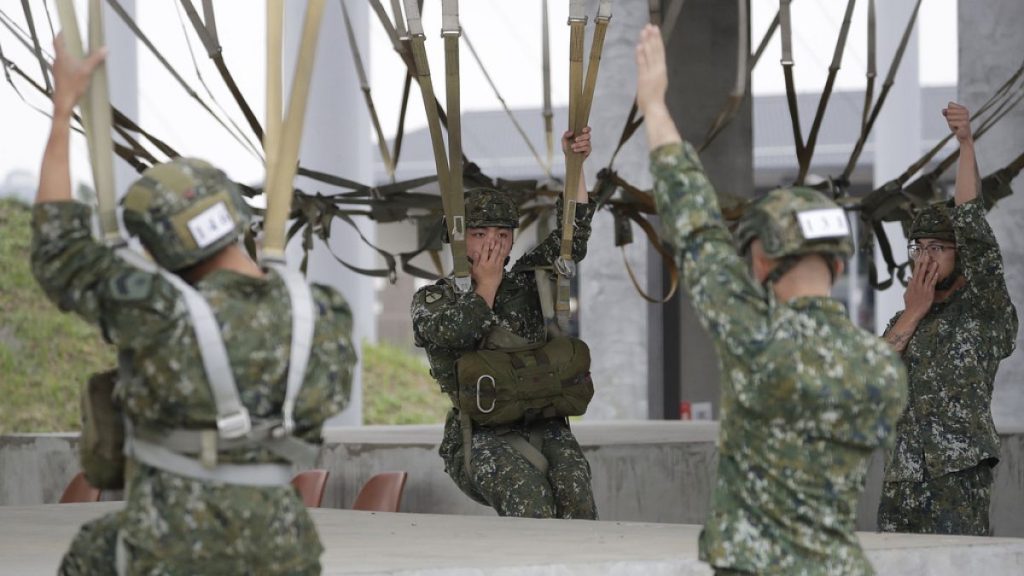The escalating tensions between China and Taiwan have brought the island nation’s defense strategies into sharp focus, particularly the role of its airborne forces. Colonel Chen Kuan-yu, commander of the army’s Airborne Training Centre, emphasized the dual nature of Taiwan’s military priorities: maintaining a robust defense while also preserving the capability to infiltrate enemy territory in the event of an armed conflict. Airborne operations, by their very nature, offer a unique tactical advantage, enabling rapid deployment of troops behind enemy lines, disrupting communication and supply lines, and potentially seizing key strategic locations. This capability becomes especially critical in the context of a potential invasion, where airborne forces could play a crucial role in delaying or disrupting an adversary’s advance.
Taiwan’s renewed focus on airborne training occurs against the backdrop of increasingly assertive actions by China, which claims Taiwan as its own territory and has repeatedly threatened to bring the island under its control, by force if necessary. The recent incursions of Chinese military aircraft into Taiwan’s air defense identification zone, including crossing the median line of the Taiwan Strait, underscore the immediacy of the threat. These actions, perceived as provocative by Taiwan and its allies, serve as a constant reminder of the potential for conflict and the need for Taiwan to maintain a high level of military preparedness. Airborne forces, with their ability to project power rapidly and unexpectedly, represent a key component of Taiwan’s deterrent strategy, signaling its resolve to defend itself against any aggression.
The strategic importance of airborne capabilities in the context of a potential conflict over Taiwan cannot be overstated. In a scenario where China might attempt a full-scale invasion, airborne forces could be deployed to secure critical infrastructure, such as airfields and ports, disrupting the enemy’s advance and buying valuable time for reinforcements to arrive. Furthermore, they could conduct reconnaissance missions deep behind enemy lines, gathering intelligence about enemy troop movements and fortifications, providing crucial information for planning counter-offensives. The ability to insert troops behind enemy lines also presents the opportunity for sabotage operations, targeting command centers, communication networks, and logistical hubs, further disrupting the enemy’s operational capacity.
Maintaining a highly trained and well-equipped airborne force is a complex and demanding undertaking. It requires rigorous training regimens that simulate real-world combat scenarios, ensuring that paratroopers are prepared for the physical and psychological challenges of operating behind enemy lines. This includes proficiency in parachute insertion techniques, navigation, close-quarters combat, and survival skills. Equally important is the provision of advanced equipment, including specialized aircraft for troop transport, reliable communication systems, and effective weaponry. Investment in these areas is essential for ensuring that Taiwan’s airborne forces remain a credible deterrent and a valuable asset in the event of a conflict.
Taiwan’s investment in airborne capabilities sends a clear message of its commitment to defend its sovereignty and deter any potential aggression. By demonstrating its ability to project power and disrupt enemy operations, Taiwan aims to raise the cost of any potential invasion, making it a less attractive proposition for China. This approach complements Taiwan’s broader defense strategy, which focuses on asymmetric warfare, leveraging its strengths to counter China’s numerical superiority. The emphasis on mobility, flexibility, and surprise inherent in airborne operations aligns perfectly with this strategy, allowing Taiwan to exploit vulnerabilities and maximize its defensive capabilities.
The future of cross-strait relations remains uncertain, with the possibility of conflict looming large. As tensions persist, Taiwan’s continued focus on developing and maintaining a robust airborne capability will be crucial for its defense strategy. These highly trained and well-equipped forces represent a vital asset, capable of playing a decisive role in any potential conflict, deterring aggression, and protecting Taiwan’s independence. The ongoing training and investment in these forces underscore Taiwan’s commitment to its own security and its resolve to defend its democratic way of life.














